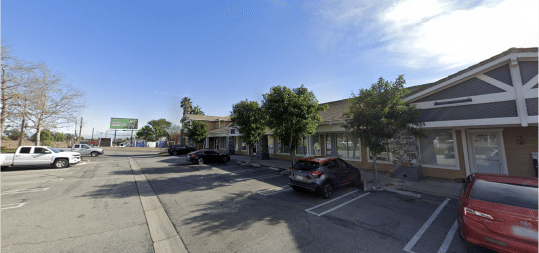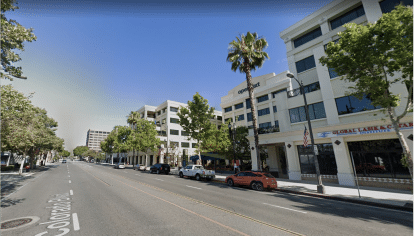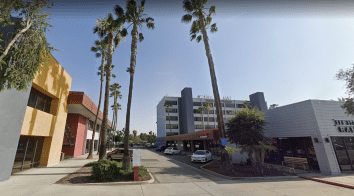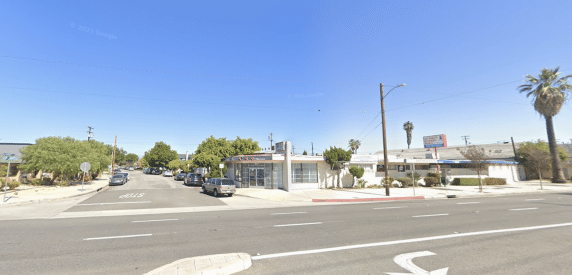
Facing an arrest or dealing with a loved one in custody can be incredibly stressful. At CBB Bail Bonds, we understand your anguish and are here to assist you during this challenging time. Our bail bond company offers Alhambra bail bonds services to secure you or your loved one's quick release from jail while ensuring discretion and respect throughout the process.
We firmly believe everyone is innocent until proven guilty, and you are entitled to the strongest possible defense. You will have an easier time preparing that defense if you are outside of jail, so we will work as quickly as possible to get you out of jail once a bond has been set.
Learn more about how our bail bonds work in the local area.

When someone is arrested in Alhambra, they can be released from jail through the bail process. A bail is a form of insurance deposited to the court, ensuring that the defendant will return for their court proceedings. If the defendant doesn't have sufficient funds to cover the bail amount, a bail bond agent can help.
A bail bondsman will provide a surety bond to the court, guaranteeing the defendant's appearance at future court dates. The bail bondsman charges a fee—usually 10% of the total bail amount, but we will work with you to make bail bonds in Alhambra as affordable as possible.
When considering the issuance of a bail bond, several factors will be considered. Understanding these eligibility criteria can help ensure a smoother process and clarify what is involved.
The eligibility criteria for obtaining a bail bond involve several factors that assess the risk associated with the defendant and their likelihood of adhering to court requirements. It's essential to understand these factors when engaging with a bail bondsman to secure a release from jail.

There are various types of bail bonds, and the kind you need will depend on the specific circumstances of the defendant's case. We offer a variety of bail bond services, and your options include the following:
Cash bail bonds require the full bail amount to be paid in cash. This can benefit minor offenses where the bail amount is low, and the defendant can pay the full amount.
Federal bail bonds are for offenses against federal law. These are more complicated cases and generally involve higher bail amounts. Federal bail bonds require a bondsman with experience in these types of cases.
If a resident of Alhambra is arrested in another state, a transfer bail bond can be used. This allows an Alhambra bondsman to post bail in the jurisdiction where the arrest occurred.
Paying for a bail bond doesn't have to be a hassle or create undue financial stress. Different payment methods are available to accommodate various financial situations:
At CBB Bail Bonds, we understand the pressure and stress of securing a bail bond. We aim to ease that burden by offering flexible payment options tailored to your specific financial needs. Our expert bail bondsmen are available to guide you through the payment process, helping you understand each step so there are no surprises.

Once you have secured a bail bond, posting bail begins. Here are the steps involved in posting bail:
It is important to remember that being released on bail comes with specific responsibilities. The defendant must attend all subsequent court dates. Failure to do so can lead to additional charges, and the defendant can be taken back into custody. Additionally, the bail bond's full amount could become due immediately, causing potential financial hardships for those who signed the bail bond contract.
Knowing where to go is crucial when you or a loved one is in legal trouble in Alhambra. Alhambra Police Department, located at 211 S First St, Alhambra, CA 91801, is the primary law enforcement agency in the city. The Alhambra jail is located at the Alhambra Police Department in California as well.
The Alhambra Courthouse is at 150 W Commonwealth Ave, Alhambra, CA 91801. The courthouse handles criminal cases, where the bail amount will be set and where the defendant must appear for court proceedings.

Choosing the right bail bond agent can significantly ease the stress of dealing with an arrest. Here are a few benefits of choosing a reliable Alhambra bail bond agent:
Rely on our licensed bail bondsmen to provide quick bail service to get you out of the Alhambra City jail as quickly as possible.

At CBB Bail Bonds, our bail bond agents are experienced, compassionate, and dedicated to helping you navigate this challenging time. We understand the intricacies of the Alhambra justice system, and we'll work diligently to get you or your loved one out of jail as quickly as possible. We prioritize your privacy and dignity throughout the process.
We understand the anxiety and confusion of navigating the bail bond process in Alhambra. Our team of Alhambra bail bonds agents are here to help, offering fast, respectful, and confidential service to secure you or your loved one's release from jail. Contact us today for assistance.
Understanding the bail bond process is crucial when you or a loved one is in jail. Here are answers to some commonly asked questions:
The first step is to gather all the information about the person in jail—full legal name, date of birth, jail, charges, and bail amount if known. Then, contact a reputable bail bond agent, like CBB Bail Bonds, for assistance.
The court sets the bail amount, and varies depending on the charges, the defendant's criminal history, and other factors. In California, bail bond agents typically charge a 10% premium of the full bail amount.
Collateral is something of value used to secure a bail bond. It can be real estate, vehicles, jewelry, stocks, or other assets. The collateral is returned once the defendant has completed all court appearances.
Not always. The need for collateral depends on the bail amount, the charges, and the defendant's flight risk. Your bail bond agent will discuss these details with you.
"*" indicates required fields






